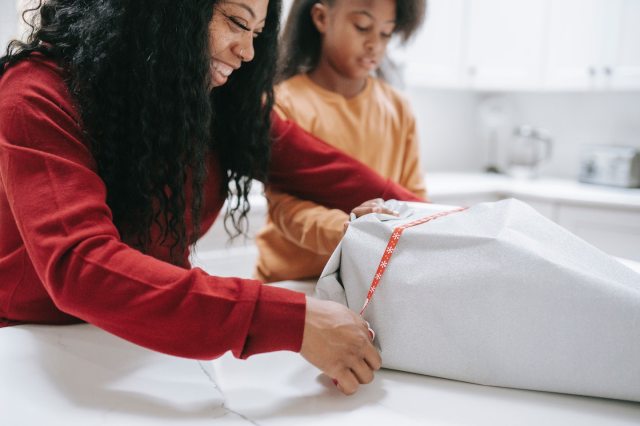Are you raising a little social justice warrior? Well, there is no time like the holiday season to get kids into the mindset of thinking about others. As described in Race, Class, and Parenting: 7 Strategies for Raising Sensitive, Confident, and Loving Kids, gratitude and empathy form the foundation of social justice parenting. Keep reading for our top ideas to help you teach your children awareness, compassion and service.
1. Volunteer at a Food Bank or Organize a Food Drive
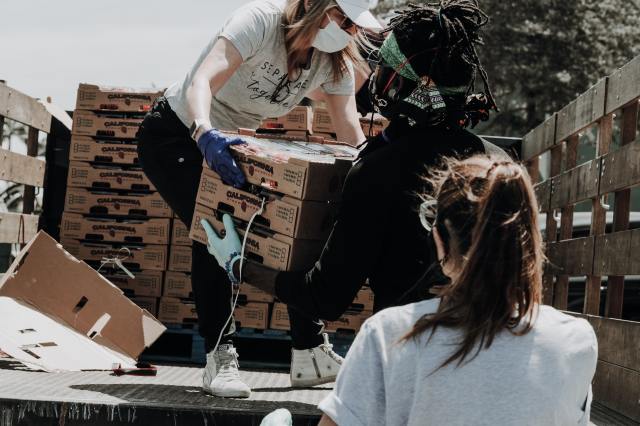
Family meals are typically such an important part of our holiday season, but so many individuals and families struggle to put a meal on the table year-round. In 2020, an estimated 10.5% of U.S. households were food insecure, according to the USDA Economic Research Service. Volunteering at a local food bank is an effective way to make our children more aware of their privilege and to teach our children the importance of service. If your child is too young to actually serve or stock food, you can help them organize a food drive among their family, classmates, teammates and friends.
2. Make Care Packages for the Unhoused
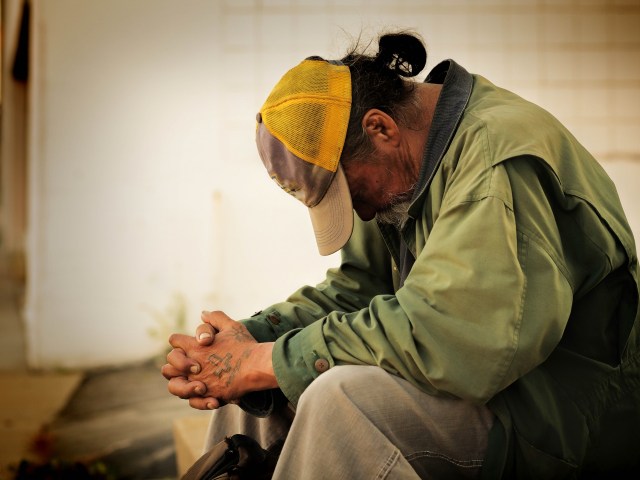
The number of people who are without permanent homes has been on the rise this year, particularly in the wake of the coronavirus pandemic that has forced so many people out of work. In January 2019, even before the onset of the COVID-19 pandemic, according to the US Department of Housing and Urban Development’s Annual Point-in-Time Count, seventeen out of every 10,000 people in the United States experienced homelessness on a single night. Of these 567,715 people, more than 35,000 were children.
A fairly simple, but meaningful project is to make care packages with toiletry items, like toothbrushes, toothpaste, soap and deodorant for people who are displaced. These kinds of sanitation items help to restore a sense of dignity for people who are struggling to maintain their hygiene during this transitional period in their lives. You can set a budget for picking up these items from a local dollar store, or you could even creatively repurpose hotel shampoos and lotions. Because coronavirus is still a significant risk, consider adding a small bottle of hand sanitizer. These items can be distributed through formal organizations that service these populations, or you can just keep freezer bag parcels in the back of your car to distribute in safe situations when you are out and about.
3. Learn about the Holiday Traditions of Others
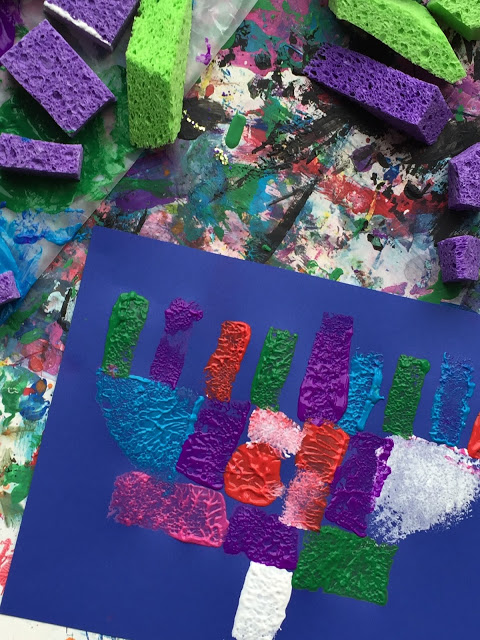
In a year when we seem to be struggling more than ever to maintain respect for people who are different than us, there has never been a better time to establish a tone of inclusion and acceptance in our own family culture. This holiday season, be sure to make time to learn about the traditions and experiences of people who are different than you. Set an important example for your children by taking the time to understand what matters to your neighbors and why. Here are some of the holidays that are being celebrated around the world through fall and winter:
- Diwali (Nov.)
- Thanksgiving (Nov.)
- Feast of Our Lady of Guadalupe (Dec. 12)
- Hanukkah (Nov./Dec.)
- Lucia Day (Dec. 13)
- Mawlid an-Nabi (Fall)
- Winter Solstice (Dec. 21)
- Christmas (Dec. 25)
- Kwanzaa (Dec. 26 – Jan. 1)
- Three Kings Day (Jan. 6)
- Lunar New Year (Jan./Feb.)
4. Share Your Holiday Traditions with Others
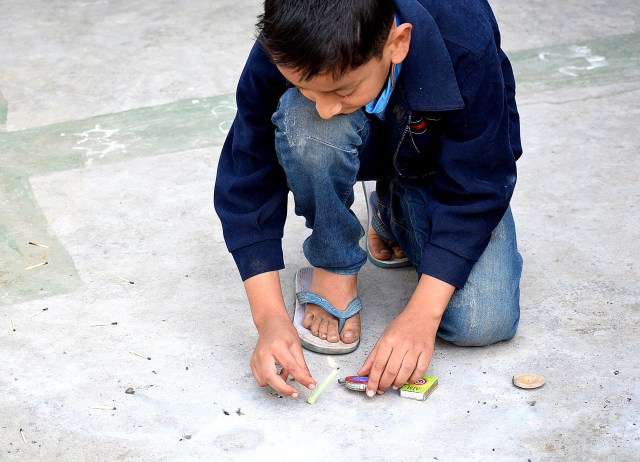
Even as you make an effort to learn about others, don't forget the importance of sharing your traditions as well. Striving for a more equitable society means we are willing to participate in a reciprocal exchange of cultures and traditions. Consider sharing your traditions with friends of different backgrounds. Invite two to three neighbors to participate in a recipe swap for Thanksgiving; encourage them to share a food/recipe they grew up eating. Perhaps you can invite a friend to participate in a spiritual service at your temple, church or mosque. To move us forward as a society, we all have to be willing to be more vulnerable with one another, and there are many simple ways to do so over the holiday season.
5. Craft Holiday Cards for Seniors in Assisted Living Communities
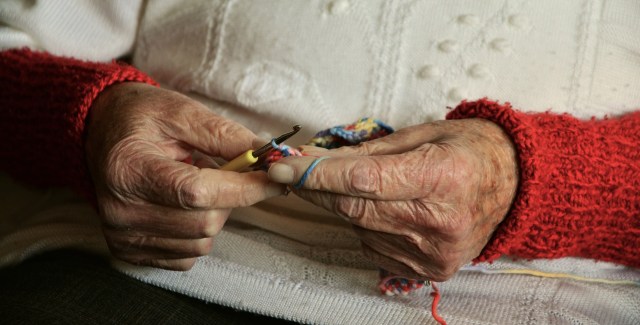
Loneliness is a significant burden on the elderly, including those who reside in assisted living communities. According to the CDC, lonely seniors are at greater risk for dementia, depression and premature death. Teach your children to be sensitive to this vulnerable population by planning a crafting day to make holiday cards that you can drop off for seniors at a facility in your community. These cards will spread cheer to people who can really benefit from knowing that they are remembered and appreciated by their neighbors.
6. Organize a Toy/Blanket/Clothing Drive
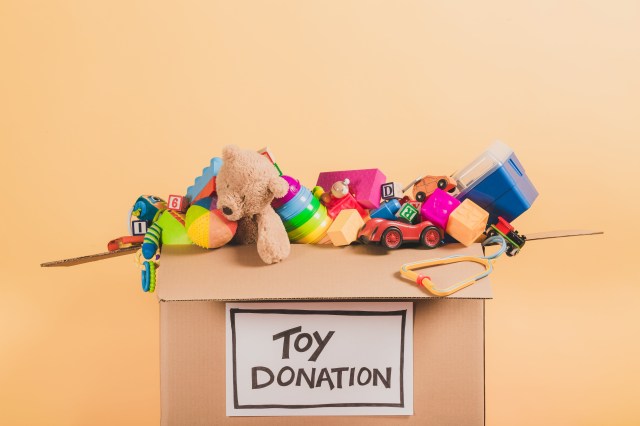
We don’t just want to teach our children how to be caring, we want to empower them with the skills to actually make the changes we need for a better world. This holiday season, support your children as they take the lead on organizing a toy, clothing or blanket drive. Start with research about communities that could benefit from this kind of activism, including unhoused people, children in orphanages and families displaced by hurricanes and fires this year. Help them figure out how to communicate and raise awareness about the social issues that create these needs. Encourage them to enlist help and form partnerships to scale their impact. Teach them to set goals and to be persistent towards their goal. Ultimately, they will internalize a powerful lesson about their ability to influence change.
7. Raise Awareness and Spread Love with Holiday Cards

Holiday cards are such a fun way to spread cheer among our friends and family. Consider designing a card or sharing a more intentional message among your social network this holiday season. Give updates on the social justice activities you have executed over the past year or share your positive intentions for the world in the coming year. Create holiday cards that encourage, enlighten and inspire this year.
8. Gratitude Activities
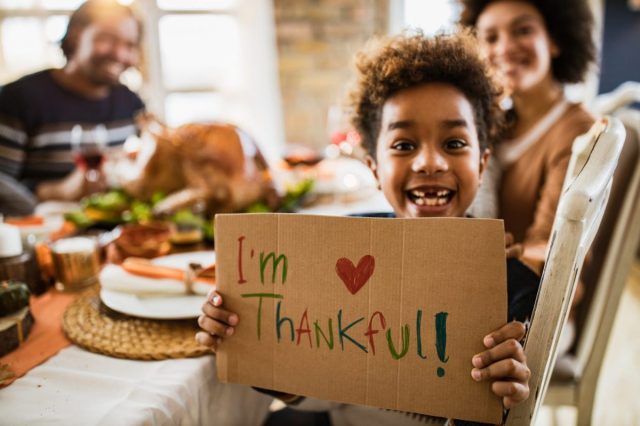
Children who are grateful are better able to feel confident, show compassion and leverage their privilege on behalf of others. Gratitude is the most valuable perspective in social justice parenting. Create new holiday traditions focused on gratitude; consider Thanksgiving crafts or activities that inspire your kids to think about what they are grateful for. Plan to go around the dinner table and reflect on what each person appreciates in his or her life. If you use an Advent calendar in your holiday traditions, consider connecting each daily ritual to an explicit statement of gratitude. Help your children communicate in the dialect of thankfulness this holiday season and all year long.
9. Buy Presents with Greater Intention
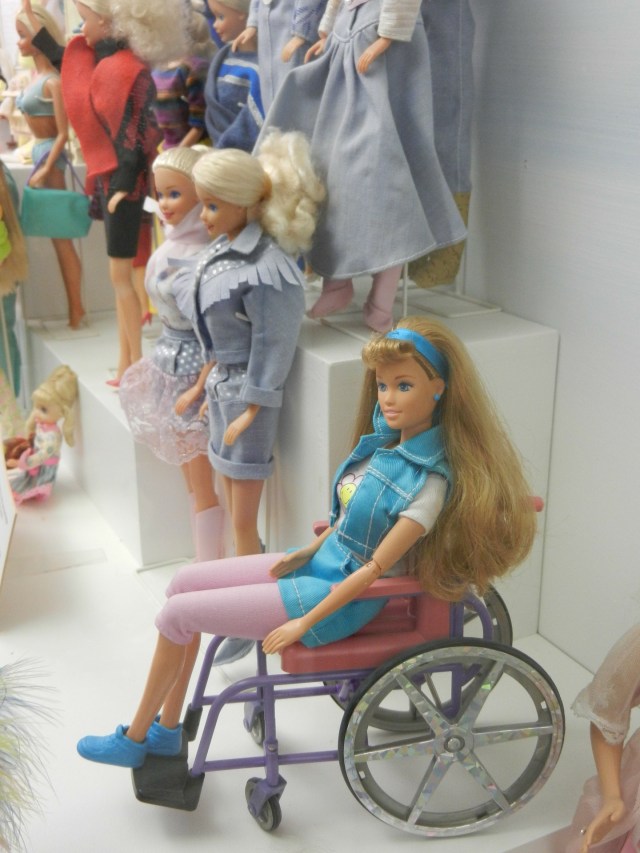
This holiday season, use your purchasing power to promote social justice. As we are buying gifts for family, friends and all of the people in our lives who have helped us get through the year, think about where and how you spend your money. Make a point to buy from small businesses who have been disproportionately impacted by pandemic closures. Purchase goods and services from minority-owned businesses. When planning gift purchases, try to buy dolls, toys and books that represent all people of different races, ethnicities and abilities. Every dollar you spend is truly a vote for the type of world that you want to live in.
10. Make New Year’s Resolutions around Social Justice Issues

It is never too early to form a resolution or set a vision for the coming year. Even young children can and should be taught to dream and set goals for themselves and their communities. For the coming year, you and your family can set specific resolutions around social justice issues. Perhaps you will commit to reading books and learning more about systemic bias or environmental justice. Maybe you will commit to volunteering on a regular basis in your community in the coming year. You may decide to become more politically active engaging your local politicians or pursuing an elected or appointed position yourself. You might decide as a family to rescue a new pet. Setting intentions are a powerful first step to evolving as an individual, as a family, and as a society.
– Mimi Nartey
Featured image: Pexels
RELATED STORIES:
How I Explain Racism to My White Friends (So They Can Explain It to Their Kids)
How to Teach Children Compassion
How to Educate Your Children on Riots & Protests
This Author Compiled a List of 500 Diverse Books for Teens & Tweens

Need some fresh ideas?
Subscribe to our weekly newsletter for expert parenting tips and simple solutions that make life instantly better.
By subscribing you agree to Tinybeans Terms and Privacy Policy
